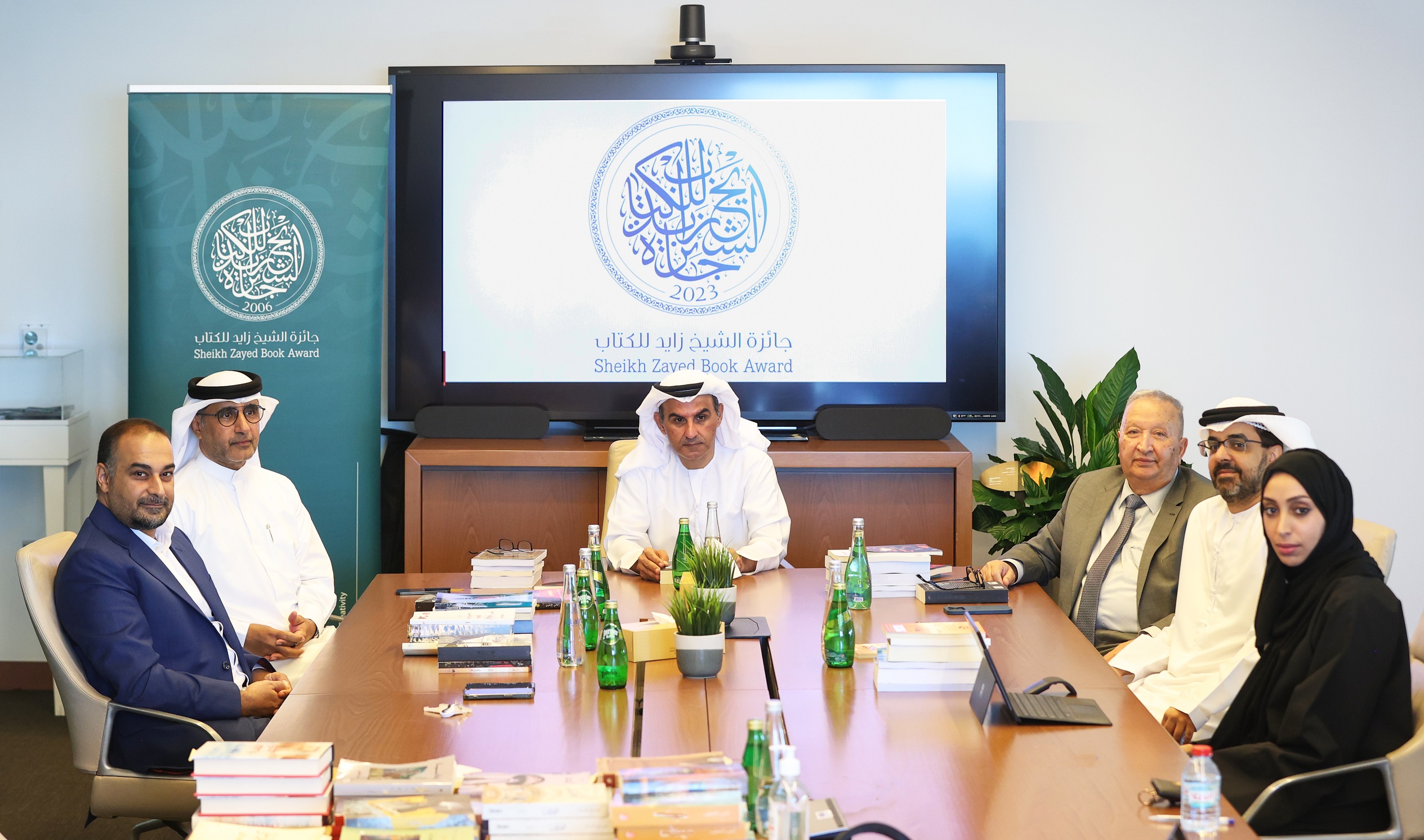Award series receives highest turnout in its history with a 34% increase in nominations over last year
The Sheikh Zayed Book Award (SZBA), organised by the Abu Dhabi Arabic Language Centre (ALC), part of the Department of Culture and Tourism – Abu Dhabi, announced that its 18th edition (2023 - 2024) has received the largest number of nominations in the Award’s history. A total of 4,240 nominations were received from 74 countries – including 19 Arab nations and 55 other countries around the world.
Chaired by His Excellency Dr. Ali bin Tamim, SZBA Secretary-General and Chairman of the ALC, the SZBA Reading Panel Committee that includes His Excellency Saeed Hamdan Al Tunaiji, Executive Director of the ALC, and Prof. Dr. Bilal Orfali, member of the ALC Scientific Advisory Committee, along with members of the Scientific Committee of the SZBA, Prof. Dr. Khalil Al Sheikh and Dr. Badria Bishr, evaluated the submissions for conforming to requirements. The meetings were held in the presence of Abdulrahman Mohamed Al-Naqbi, Director of the ALC’s Literary Awards Department.
HE Dr. Ali bin Tamim said: “For nearly two decades, the Sheikh Zayed Book Award has firmly established itself as an authority in the regional and global cultural arena. The Award commands tremendous respect through its continued pursuit of fulfilling the vision of the late Sheikh Zayed bin Sultan Al Nahyan, Founding Father of the UAE, who always sought to strengthen the foundations of creativity and knowledge and amplify the work of talented individuals. The remarkable increase in the number of submissions we received this year reflects the growing prominence of the Award worldwide. We look forward to continuing along this path to enrich human knowledge, spotlighting works that elevate humanity and our collective intellectual and cultural heritage.”
This year, Egypt topped the list of participating countries in terms of nominations received, followed by Iraq, Morocco, Algeria, Jordan, Syria, Saudi Arabia, Tunisia, Palestine, and the UAE. Outside the Arab region, India led the list, followed by the United States, the United Kingdom, France, Spain, and Germany. The Award also saw a number of countries participate for the first time, namely Slovenia, Serbia, Romania, Nepal, Mauritius, Kyrgyzstan, Hungary, Guinea, and Djibouti.
Of the Award’s 10 categories, the Young Author category received the highest number of submissions with a total of 1,078 nominations, accounting for 25% of the total. The Literature category ranked second with 1,032 submissions, making up 24% of the nominations, while the Children’s Literature category received 437 submissions, representing 10% of the total. The other categories are Literary and Art Criticism, Contribution to the Development of Nations, Translation, Editing of Arabic Manuscripts, Arab Culture in Other Languages, Cultural Personality of the Year, and Publishing and Technology.
The Young Author and Literature categories recorded significant increases in submissions for the current edition, with a total of 1,078 nominations for the former, up from 954 in the previous edition, and 1,032 for the latter, compared to 688 last year. Submissions from female nominees also saw a notable uptick, with the Award receiving 1,182 nominations, compared to 1,042 in the previous edition and 915 the year before that. Moreover, the number of nominated institutions also increased significantly to 201 this year, up from 24 in the previous edition.
The Award had introduced a new category last year – Editing of Arabic Manuscripts. The category is dedicated to the editing of Arabic heritage manuscripts following scientific methods within any field of knowledge in Arabic traditions, including specialised and general lexicons.
Launched in 2006, the Sheikh Zayed Book Award aims to promote Arab literature and culture and honours outstanding achievements of creative thinkers in the fields of literature, arts, and humanities in Arabic and other languages, creating new opportunities for Arabic-speaking writers. It also honours authors who write about Arab culture and civilisation in English, French, German, Italian, Spanish, and Russian.
-End-













